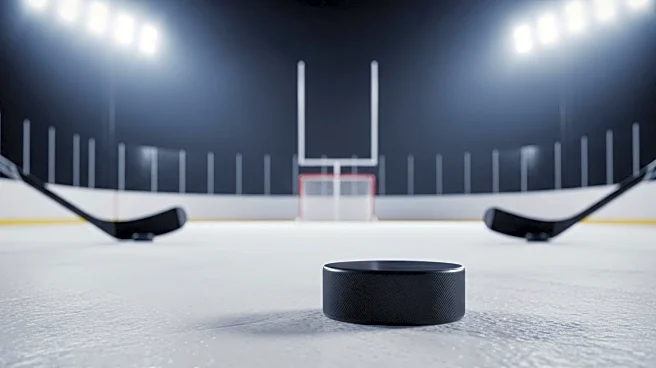What's Happening?
During Game 3 in Sunrise, Matthew Tkachuk of the Florida Panthers delivered a significant open-ice hit to Jake Guentzel of the Tampa Bay Lightning. The incident occurred after Guentzel passed the puck to Anthony Cirelli, who subsequently scored into an empty net. Tkachuk's hit resulted in a five-minute major penalty for interference, similar to a previous penalty that led to Brandon Hagel's suspension. Despite the severity of the hit, the NHL's Department of Player Safety has decided not to pursue further disciplinary action against Tkachuk. The decision was influenced by factors such as the force of the hit not being at the level of previous incidents, no head contact, and Guentzel's interaction with the puck prior to the collision.
Why It's Important?
The NHL's decision not to discipline Tkachuk further highlights the league's approach to player safety and the criteria used to assess penalties. This decision may impact how similar incidents are judged in the future, potentially affecting player behavior and team strategies. The lack of additional punishment could be seen as a precedent for evaluating the severity of hits and the context in which they occur. Teams and players may need to adjust their understanding of what constitutes a suspendable offense, influencing game dynamics and player conduct.
What's Next?
The Tampa Bay Lightning may need to reassess their defensive strategies to protect players from similar hits in future games. The decision could lead to discussions among teams and the league regarding the consistency of penalty assessments and the criteria for suspensions. Stakeholders, including team management and player representatives, might advocate for clearer guidelines to ensure player safety while maintaining competitive play.
Beyond the Headlines
This incident raises questions about the ethical considerations of player safety in professional sports. The balance between aggressive play and player protection is a recurring theme in hockey, and decisions like this one can influence public perception of the league's commitment to safety. Long-term, this could affect the NHL's reputation and its relationship with fans and players.









